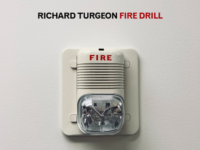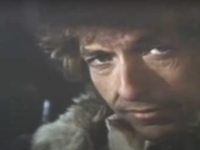With G.R.A.S.S On Fire, we have a slight (but interesting!) departure from most jazz-meets-pop albums. Instead of merely extending the original material, the Gowanus Reggae and Ska Society (I’m only going to type this name once) finds the point of commonality between the genres and mines it for the music’s absolute truth: the groove and uplifting spirit. Bob Marley’s iconic Catch a Fire, reworked in a jazz frame of mind. It’s a lot of fun, partly because even with the serious subject matter, the sway of reggae is insistently mirth-inducing. Mostly, their obvious love of the music itself will win you over.
The tendency with some jazzifications is that the play is too reserved, too well-heeled. The results can be constrained by timidity. Not so here. This instrumental lineup — full of horns, keyboards, guitar, and the well-positioned harmonica — strikes just the right combination of subtlety and aggression, bringing along snarling bits of rock into the reggae/jazz mix.
As with most albums I’ve grown to love, it’s nearly impossible to play favorites among the songs. The free excursion that takes over “400 Years” is definitely a highlight. When the main theme returns for the playout, the groove has been transformed into an anthem. The same can be said for “No More Trouble,” with guitarist Brad Shepik burning the house down. “Baby We’ve Got A Date” is Catch A Fire at its most playful (“playful” being a rare sentiment on such a political album), with the vocal melody being carried by the harmonica of David Barnes. The album shows it cards early, with a nearly psychedelic introduction to “Concrete Jungle.” It’s an effective way to lead things off, giving signal that the jazz will not push aside the toughness of the music.
The high point on the album (and on the Marley original) is “Stir It Up.” The deep groove of that bassline can’t be ignored. G.R.A.S.S. mines it heavily, with the “vocal” again provided by David Barnes’ harmonica. Just wait for the killer Nate Shaw keyboard solo…it will put your backside into motion.
G.R.A.S.S On Fire isn’t so much a tribute as a celebration. Listen to those horns trading licks on “Stop That Train.” It ends up being Bob Marley by way of New Orleans. If you can’t deal with that then I suggest a larger size of bow tie.
- Why the Rolling Stones’ Harrowing ‘Gimme Shelter’ is Still Revealing New Depths - November 18, 2024
- How Talking Heads’ ‘Fear of Music’ Opened Up a World of Art and Sound - August 5, 2024
- How Deep Cuts Propelled Bruce Springsteen’s ‘Born in the U.S.A.’ - June 4, 2024





